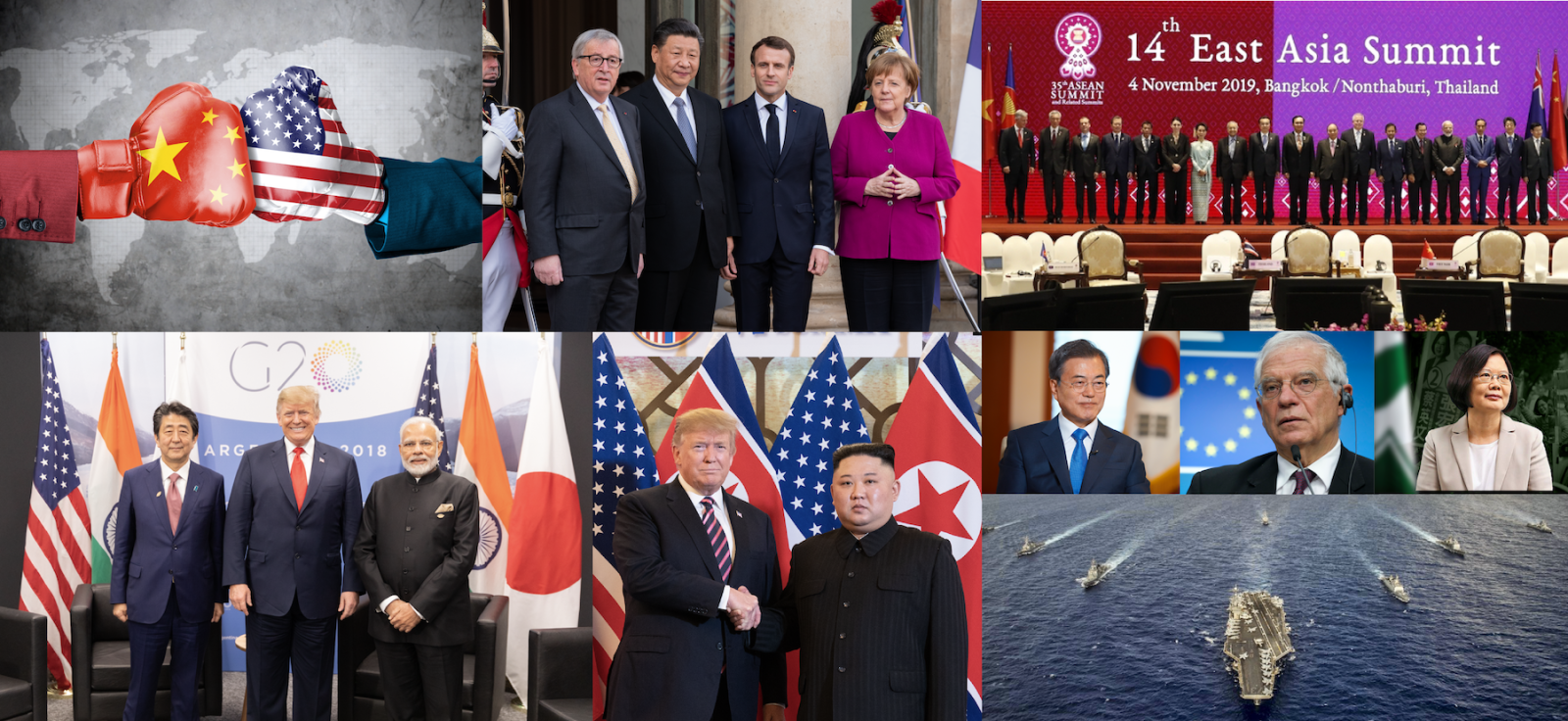From East Asia to Indo-Pacific: Strategic Risks, Power Shift and New Order in the Making

Practical information
Regional stability in East Asia is under increasingly heavy strain. As tensions rise between the United States and China, veering towards a fiercer strategic competition that extends well beyond the current trade war, the potential for US-China confrontation looms large.

The region’s hot spots – from the South China Sea to the Korean Peninsula to the Taiwan Strait – remain potent reminders of instability. Meanwhile, a competition for regional leadership continues to develop through concepts such as China’s ‘Belt and Road’ and the ‘Free and Open Indo-Pacific’.
Regional competition and strong uncertainty are pushing Asian countries to adopt hedging strategies that are facilitating a flurry of partnerships and minilaterals. In this context, there is a heightened interest for cooperation with individual European countries and/or the EU. At the same time, the historical US alliance system in the region is under stress. In the Indo-Pacific, a new order, different from what we have previously experienced, is in the making.
The distinguished speakers will discuss these issues and more.
The conference will be held in English (no translation provided).
Programme
Welcome Remarks by Thierry de MONTBRIAL, Executive Chairman, Ifri and Junichi IHARA, Ambassador of Japan in France
Keynote Speaker: Barry DESKER, Distinguished Fellow at the S. Rajaratnam School of International Studies, Singapore
Chairs: Masashi NISHIHARA, President, Research Institute for Peace and Security (RIPS), Japan and Céline PAJON, Head of Japan Research, Center for Asian Studies, Ifri
- Patrick CRONIN, Asia-Pacific Security Chair, Hudson Institute, United States
- Hugo MEIJER, CNRS Research Fellow, Sciences Po (CERI), France
- Hiroyuki AKITA, Editorial Staff Writer, The Nikkei, Japan
Concluding remarks: Masashi NISHIHARA, President, RIPS
Other events

EV Supply Chains for Japan and Europe: Strengthening Economic Security
Economic security aims to ensure the resilience of supply chains for key industries: the case of electric vehicle production in Japan and Europe will be discussed.

What Kind of Technological Partnership with India?
As India asserts its technological ambitions and seeks to reduce its dependence on China, Europe is stepping up its efforts to diversify its strategic partnerships. What opportunities arise from the convergence of these two dynamics? Can cooperation in cutting-edge sectors—from electric vehicles to artificial intelligence and semiconductors—transform the Indo-European relationship into a lever for strategic autonomy?






